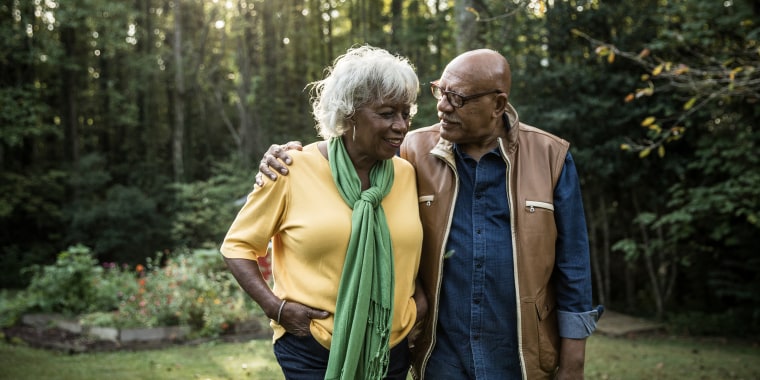Spending time with a good listener not only feels great, it may be key to keeping the brain healthy as people age.
Adults who reported having lots of access to someone who could listen to them when they needed to talk had a younger “cognitive age” than those who had fewer opportunities to share their thoughts with a friend or loved one, a recent study found.
High listener availability seemed to create a protective buffer against brain shrinkage and other structural brain changes that everyone experiences to some degree with aging, researchers reported in JAMA Network Open.
The exact mechanisms for this effect aren’t clear, but one theory is that being with a good listener stimulates many parts of the brain, boosting its neuroplasticity — the ability to rewire and adapt, said Dr. Joel Salinas, an assistant professor of neurology at the NYU Grossman School of Medicine and lead author of the study.
“You're creating conditions in your brain that function almost like Miracle-Gro, where you have many brain cells connecting with each other and creating spares,” Salinas told TODAY.
“So even if you do develop any kind of brain injury or disease, you have lots of spare pathways and the information still gets to where it needs to get to.”
Another possible explanation is that being with a good listener helps people manage the effects of chronic stress such as systemic inflammation and heart disease.
For every unit of decline in brain volume, people in their 40s and 50s who had someone to listen to them had cognitive functioning that was four years younger than their peers who had little access to a good listener, the study found. That means possibly delaying symptoms of Alzheimer’s disease or other dementias that show up later in life for millions of Americans.
“As somebody who does Alzheimer's research, that four years can make a big difference in terms of having time to spend with your friends and family, to continue your work, to be able to enjoy the things that really make your life meaningful,” Salinas noted.
“If having a better listener who’s available to you confers some potential kind of protective effect, that's something that is relatively inexpensive. Any of us can either cultivate it in our lives or actually be that good listener for other people in our life that we care about.”
The data is based on 2,171 adults who were 45 years old or older and took part in the Framingham Study — one of the largest and longest-running cohorts in the U.S. Each person underwent a brain MRI and cognitive testing. They also shared information about their social support.
The researchers found having a good listener readily available in life was associated with greater cognitive resilience compared to being more isolated. That listener access was a more important factor than receiving advice, affection or emotional support from the other person, the study found.
People who reported high listener availability sustained their brain’s “raw horsepower” over time regardless of its structural changes — performing better than might be expected based on their brain scans, Salinas said.
He encouraged all adults to take the time to cultivate an available pool of good listeners in their lives and be a good listener for others.
Similar to other factors that improve brain health — such as physical activity and a healthy diet — the earlier people get started, the more likely they are to accumulate benefits over time. It’s also important to pay attention to loneliness, Salinas said.
“Loneliness is really a symptom of us feeling that we're not getting the amount of social support that we want or need,” he noted. “Being able to create an environment where you can have people who you can reach out to when you need it can begin to offset some of these negative effects.”


